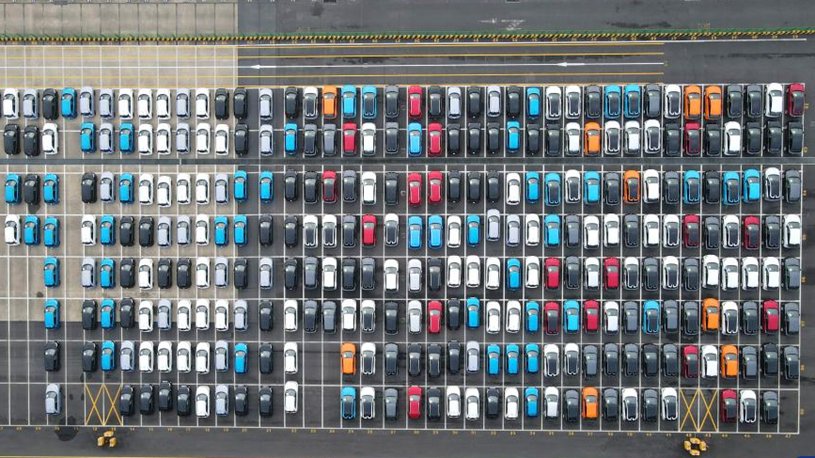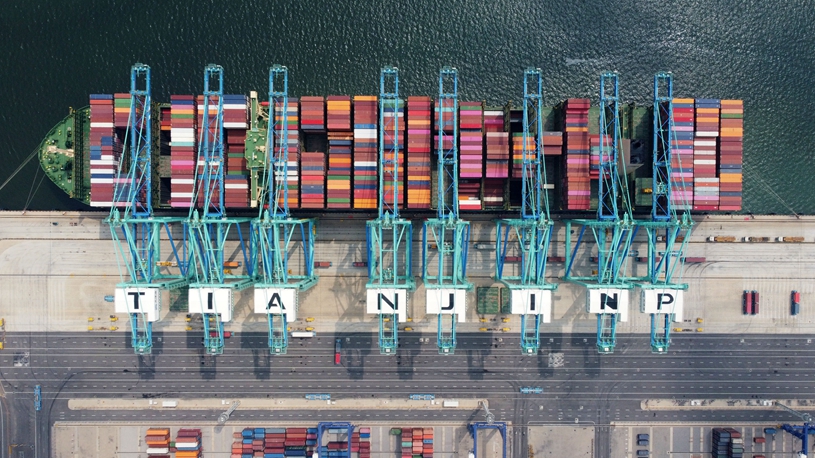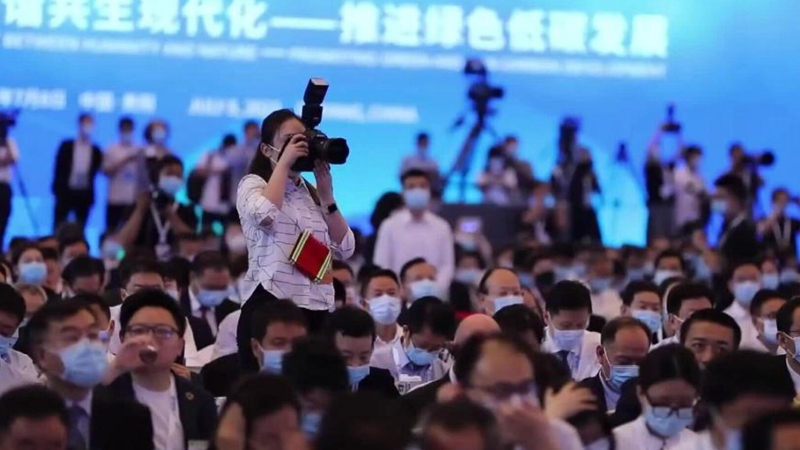
This photo taken on July 2, 2023 shows the college admission notice designed by the University of Science and Technology Beijing(USTB), which was made from "5G steel," in Beijing, capital of China. (USTB/Handout via Xinhua)
BEIJING, July 11 (Xinhua) -- Among the eye-catching college admission notices full of fresh ideas, a thin but steel one designed by the University of Science and Technology Beijing (USTB) became the top envy of Chinese netizens.
The glossy and almost gauzy admission letter is regarded as one that "deserves to be treasured for the student's whole life" by many tech-savvy Chinese due to its application of cutting-edge steel rolling techniques.
In the mobile communication era of 4G, the thickness required for an ultra-thin low-carbon steel foil is 0.12 mm to enable convenient and speedy signal transmission.
Such a demanding requirement is tightened to a mere 0.10 mm in today's 5G new era, which means more complicated techniques for its manufacturers.
For a long time, the rolling methods relied heavily on foreign enterprises. However, Shougang Group teamed up with the USTB in 2013 to conduct scientific research and development on the continuous rolling process of "5G steel," a nickname of the ultra-thin low-carbon steel foil.
According to the experts, 5G steel is used for 5G base station signal receivers, signal transmission filters, and integrated circuit boards.

This photo taken on July 2, 2023 shows the college admission notice designed by the University of Science and Technology Beijing(USTB), which was made from "5G steel," in Beijing, capital of China. (USTB/Handout via Xinhua)
The special 600-member research team set their goal even higher -- to make the 0.07-mm-thick steel foil, surpassing the world's state-of-the-art technological level, almost the thickness of a single human hair.
Fang Yuan, the chief engineer of tinplate studies from the group's technology institute, felt honored to participate in the research and development of the home-grown 5G steel.
Fang said that the thickness fluctuation of the strip steel, which is thinner than rice paper, must not exceed 0.003 mm during rolling. Otherwise, the steel will fracture into pieces due to excessive tension fluctuation.
To achieve their initial goal, the team endeavored a decade-long effort, effectively shortening the responding time of the controlling system in charge of the steel rolling by two-thirds.
Their perseverance paid off immensely, also leading to the delicate college admission notice that went viral online.
Though there is a long way ahead to apply the 0.07-mm-thick steel in industrial production, Fang believes that their breakthrough can help facilitate China's advance in communication technologies in the future.
By the end of May, the number of 5G base stations in China exceeded 2.84 million amid the country's efforts to build the world's largest and most advanced network infrastructure. With more technologically-advanced network infrastructure, the government has been accelerating the development of its digital economy over the years. ■












